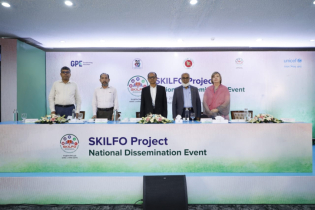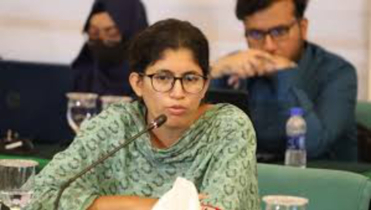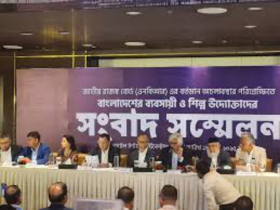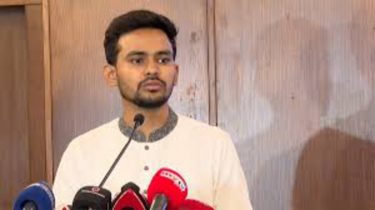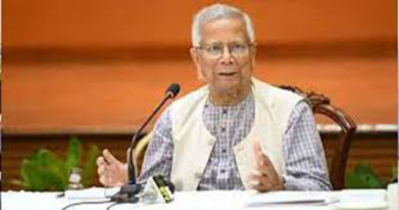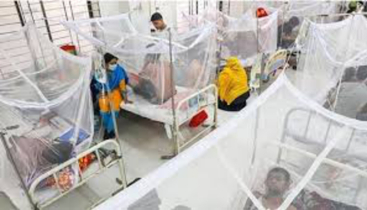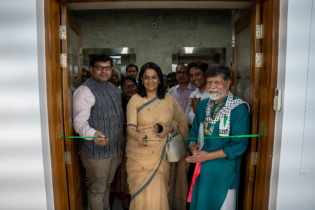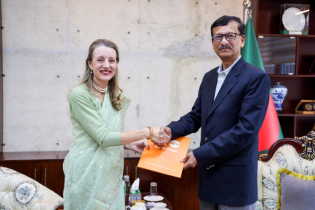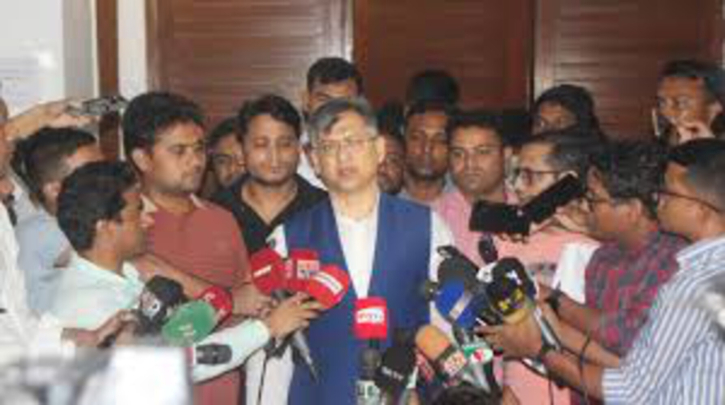
BNP senior leader Salahuddin Ahmed on Saturday alleged that those advocating for a proportional representation (PR) system and prioritising local government elections may have intentions to delay or obstruct the upcoming national election.
“Those who are talking about a proportional election system have a motive. Those who want local government elections before the national election also have a motive. Either they want the election to be delayed, or they want no election at all in Bangladesh. This could be their intention,” he said.
Salahuddin made the remarks while speaking to reporters after a commemorative publication and archive unveiling programme on martyred President Ziaur Rahman, organised by the Bangladesh Research Analysis and Information Network (BRAIN) at the International Mother Language Institute Auditorium.
The BNP leader said the people of Bangladesh are united in their demand for the national election to be held in early February next year.
“All the democratic people of this country have not struggled for local government elections. We have fought for 17 years for a free, fair and neutral national election. We have lost countless lives to establish our right to vote,” he said.
Salahuddin, a BNP Standing Committee Member, said the sacrifice of blood made by martyrs during the student-led mass uprising reflects the desire for a truly democratic state in this country. “We will certainly be able to build that democratic state if a political government is established through a free and fair national election,” he added.
He said a consensus proposal has been made through a joint statement to hold the national election in the week before Ramadan begins and in the first half of February 2026, following discussions in London between Chief Advisor Prof Muhammad Yunus and BNP Acting Chairman Tarique Rahman.
“It will only be effective when the Chief Adviser conveys the message and instructions to the Election Commission through the appropriate process in this regard…When the Chief Adviser’s Office, the Election Commission, or both together inform the nation, only then will we be truly assured that the election will be held at that time,” the BNP leader said.
Opposing the Proportional Representation (PR) system, Salahuddin said it is not feasible in the Bangladesh context. “The PR system is not suitable for elections in Bangladesh. It is a complicated method,” he said.
In a proportional representation system, the BNP leader said voters in a constituency will not know who their Member of Parliament will be, and they will not find a specific person to approach as their representative.
“BNP rejected the idea of proportional representation a long time ago. This voting system has never been suitable for Bangladesh. We support the current system—one person, one vote—where voters elect their representative directly in each constituency,” he said.
Salahuddin, however, said some may raise this as a political demand, and that is their right. “But there is no justification for imposing this demand on everyone.”
Earlier in the day, addressing a grand rally organised by Islami Andolan Bangladesh at Suhrawardy Udyan, most Islamic party leaders, including Jamaat-e-Islami Secretary General Mia Golam Parwar, said the people of the country will not accept any national election without the PR system.
They also demanded that the local government election be held before the national one.
Earlier speaking at the programme, Salahuddin raised questions about how consensus can be achieved through the ongoing discussion of the National Consensus Commission if the Commission wants its proposals to be accepted by all.
The BNP leader said reforms are not a one-off event, but a continuous process. “What is the intention of the National Consensus Commission? If the intention is that everyone must accept the Commission’s proposal, then how can there be genuine consensus?”
He said they are discussing the reform proposals and getting closer to a consensus. “We will adopt what is good for the nation. This is how we will move forward through this reform process and this reform will not end today as it is an ongoing process.”
Salahuddin said the National Consensus Commission wants to carry out reforms in such a way that constitutional changes become permanent, preventing anyone from reversing them in the future.
He, however, argued that the constitution is not like a sacred text or religious scripture. “Reforms should be flexible and able to be changed again after 10 or 20 years based on new demands from future generations.”
Salahuddin said BNP is committed to carrying out constitutional, legal, and other reforms, as the party is the main proponent of the reform process.
“We put forward our reform proposal one and a half years before the formation of the interim government. Our 31-point proposal has become a kind of political epic among the people of Bangladesh and within political circles,” he said.
Salahuddin called upon the younger generation to follow the ideals of late President Ziaur Rahman, highlighting his life of honesty and dedication.
Addressing the programme, Cultural Affairs Adviser Mostofa Sarwar Farooki said it is unimaginable how Ziaur Rahman achieved so much and accomplished so many things within such a short span of his rule.
“I think for all our political parties—those who will be in government in the future or in the opposition—Ziaur Rahman can serve as a good guide for them to follow,” he said.
The adviser observed that Ziaur Rahman introduced the concept of Bangladesh nationalism, bringing together people from all communities to build an inclusive nation.
At the beginning of the programme, a documentary on Ziaur Rahman was screened. Later, Salahuddin Ahmed inaugurated a commemorative publication compiled on the late President Ziaur Rahman, along with an internet archive dedicated to him.
TH

.png)
